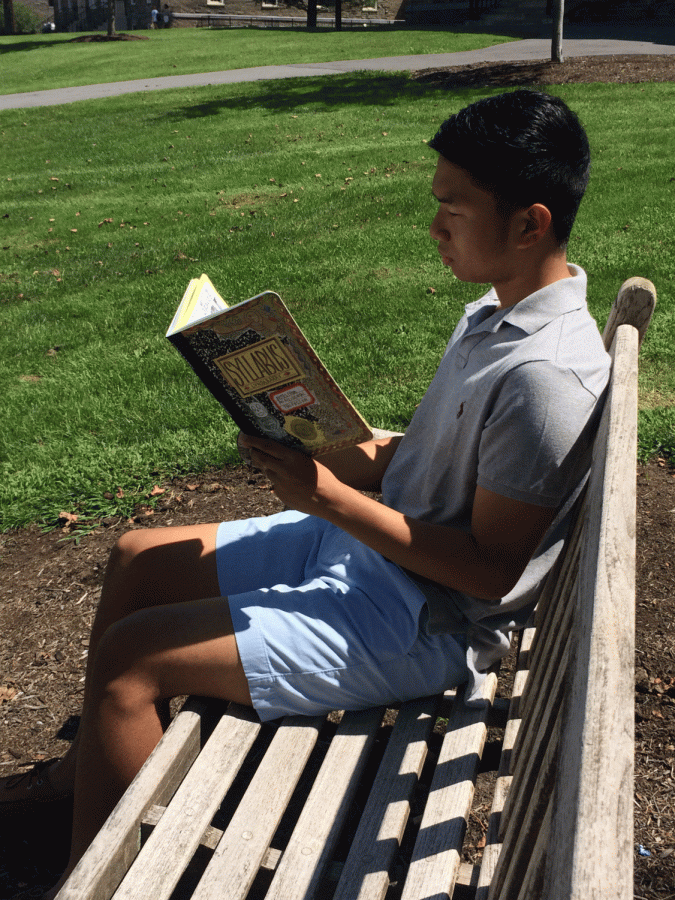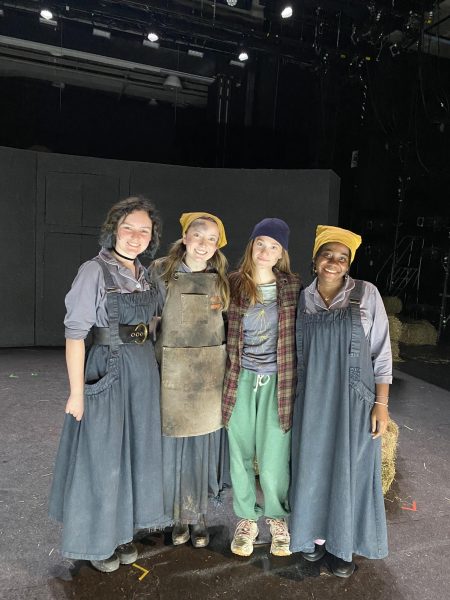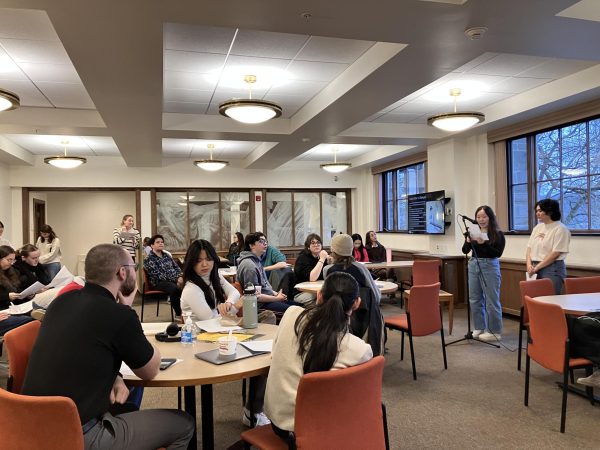Colgate First-Years Puzzle through “Syllabus: Notes from an Accidental Professor”
First-year John Bermudez catches up on summer reading before classes start on August 25. The required reading this year was Syllabus: Notes from an Accidental Professor by Lynda Barry.
Over the summer, first-years were mailed what appeared to be an old composition notebook that was in fact their summer reading book. Lynda Barry’s peculiarly bound book, “Syllabus: Notes from an Accidental Professor,” describes ways in which readers can access their “unthinkable mind,” the part of their subconscious that allows creativity to run uninhibited through drawing and writing. The book is a collection of notes Barry created while teaching at the University of Wisconsin-Madison. Her curriculum combines English, art and science as she pushes her students and readers alike to consider what an image is and how the perception of art changes with age.
Barry jumps straight into her notes and teaching strategies with very little introduction or explanation, making readers broaden their perception of writing. Her work straddles the line between a world of comics and curriculum.
“It was an odd concept, I occasionally read a graphic novel, but I’ve only maybe read twenty in total, and this was different,” first-year Omar Al-Souki said.
Barry’s book lacked a definitive plot, in that there was no universal story, no struggle to be overcome by a single protagonist. The progression of the book is recognizable because Barry organizes her notes by numbers that indicate how many times the class she taught had originally met.
“It was kind of weird, kind of random sometimes,” first-year Lidia Biratu said.
Barry asks readers to journey out of their comfort zones and rediscover their child-like creative sides. She provides readers with exercises to engage in while reading her book. Consequently, those readers who followed along and participated in the exercises got more out of it than those who simply read the book without practicing any of her activities.
“You had to be involved while reading it,” first-year Megan Beatty said.
Although involvement of readers seems complicated because Barry’s notes are written to be used in a classroom setting, independent study of the work is more than possible. Barry instructs students to not only leave their electronics behind when entering her classroom, but participants are also asked to keep any opinions they may have about their own work or the work of their classmates to themselves. As a result, reading her book independently eliminates the outside voices Barry tries so desperately to keep from hindering any writing or drawings created. Barry’s notes suggest that memorization can be improved, more lucid writing can be done, and authenticity can be achieved in artwork by anyone who diligently pursues their unthinkable mind. Some students found this to be true and worthy of their time in the future.
“I’ll adopt journaling into my note taking,” first-year Taylor Dumas said.
However, it cannot be ignored that some students did not find the summer reading to be particularly poignant at this time.
“We just want to adjust to college, not worry about being creative, so it wasn’t that applicable,” Biratu said.
Overall, “Syllabus: Notes from an Accidental Professor,” served as a gateway for some students to re-enter the world of academia with a fresh perspective, while others denied the existence of this particular benefit. It is a unique piece of work that is challenging and exceptionally different for anyone who studies it, as the purpose of working through her assignments is to free the most imaginative part of each reader, which necessarily defies the existence of synonymous experiences.







